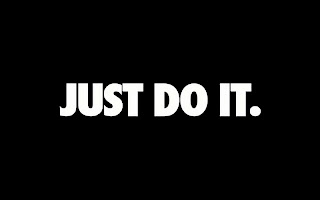November is a busy month – it’s not only the month that confuses shop owners into playing Christmas music already, it’s also host to Movember and, ah, the event that inspires and terrifies writers: National Novel Writing Month, or NaNoWriMo.
There’s no denying it’s a popular event, according to the website there are 299,589 novelists signed up this year, no doubt some of them serial attendees. Just in case you haven’t heard of it or you’re hazy on the details, entrants have between the first and last day of November to write an entire novel, at a minimum of 50,000 words. It sounds tough (because it is tough), but the organisers have plenty of resources to help keep you going – physical events, online pep talks, a forum, and the option to upload your latest word count as and when you want.
If you’ve signed up and are still going strong, congratulations – you’ve made it further than many others and that alone is incentive to finish. If you haven’t signed up but want to, you can (but you’ll need to really know what you’re going to write in order to finish on time).
Now, I’ve not yet partaken in NaNoWriMo – partly because fiction isn’t my primary outlet when it comes to writing, and partly because I forget about it until people start talking about how well they’re doing. That being said, I still feel equipped to help and encourage others, because timeframe aside, the challenge is writing books – and that’s something I have done and continue to do (if you’re new to me, I offer professional ghostwriting services (but no, I won’t write your NaNoWriMo entry…)).
Books are daunting, there’s no escaping that, and NaNoWriMo is the London Marathon of book writing. But, at the risk of further exhausting a very tired cliche, the biggest journey begins with a simple step. Have another one too: “You don’t need to be great to start, but you need to start to be great.” Actually, to salute the power of three, have this one as well:
Those cliches are tired because they’re true, and they’re as true today as the time they were first spoken. As with any book, approach it one step at a time, one page at a time, and forget about the deadline – it’s knowing that there are only 30 days in which to write the book that makes it more difficult, and if you’re the type of person that can’t cope with that pressure, forget about it. Just focus on the writing, and once you’re absorbed in the story, you’ll write a better book faster.
Part of the beauty of writing is that there are no rules. You can start on page one and work right through to the end, or you can start at the end and work backwards, or start in the middle. Whatever works for you – do alternate chapters if it helps. Write down plot and character notes, then when you’re having a hard time continuing with a certain scene, push it aside and develop one or more of those earlier notes. Not only will it ease the frustration of a deadened in the scene you were working on, you’ll also see the word count and overall story swell at a faster pace.
It can also be important – depending on the type of worker you are – to not get too concerned about other writers, or sticking exclusively to ‘rules’ of the event. No one knows your story better than you, and if you’re certain of what you want to write and the direction it will take, forge ahead. That being said, if you’re losing pace and need some help, Galley Cat is running tips for NaNoWriMo throughout the month, with today’s tip being character point of view.
Writing a book in a month is made even more difficult by the presence of Real Life – work, family, social events to name a few. For that reason having some dedicated time to set aside can make a difference in ensuring you meet your writing targets, as well as helping other people know that it’s your time and not to disturb you. “But writing isn’t like a tap, I need to be inspired and can’t just turn it on!” I hear you cry. If that’s your thought, you’re not alone. It’s difficult to just turn it on because the clock struck 7pm. So if that doesn’t work for you, find your groove – is it better for you to collect notes and ideas throughout the week and then after a lie in and gallon of coffee on Saturday morning spend the weekend tying it together to rack up the word count? Then do that instead. It can’t be over-emphasised that the only rule is there are no rules. Do what works for you, not what other people are doing. When you play by other people’s rules you lose the game because you’re restricting your own ability to work. A wise person once said the only way to get through something is to go through it, so, with that in mind:


